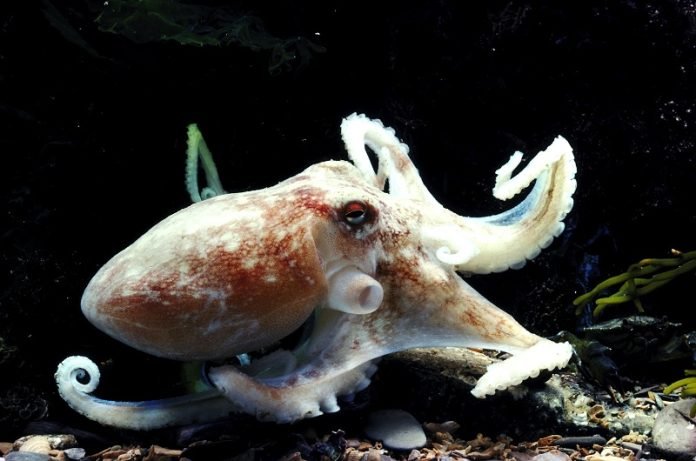
Just like us, octopuses use a large part of their brains for vision – about 70%, to be exact.
But for a long time, we didn’t really know what an octopus sees when it looks out at the underwater world.
Now, a recent study is bringing that vision into clearer focus.
Even though humans and octopuses last had a common ancestor about 500 million years ago, this study shows that the way octopuses see isn’t so different from how we do.
The scientists behind the study did something never done before: they mapped out how an octopus sees.
To do this, they watched how the octopus’s brain reacted when they showed it light and dark spots in different locations.
“No one has actually recorded from the central visual system of a cephalopod before,” says Cristopher Niell, a brain scientist at the University of Oregon. Cephalopods are a group of animals that include octopuses and similar creatures.
People don’t usually study octopuses to understand vision. Still, Niell and his team are interested in their unusual brains.
Last year, they identified different types of nerve cells in the part of the octopus’s brain responsible for vision, known as the optic lobe.
They published their findings in a scientific journal called Current Biology. This new study was also published in the same journal.
In this recent study, they watched how these nerve cells responded to moving light and dark spots on a screen.
They used a special type of microscope that glows to show the activity of the nerve cells as they reacted. They discovered that each area of the optic lobe responded to a specific spot on the screen. In other words, if they moved a spot on the screen, the activity in the octopus’s brain moved too.
This kind of matching up of specific sensations with specific areas in the brain happens in humans too.
It’s a well-known phenomenon for our sense of touch, represented by something called the ‘homunculus’. Imagine a cartoon human where the size of the body parts is based on how sensitive they are to touch.
Areas like our fingers and toes, which are very sensitive, would be huge. But it wasn’t clear if octopuses had the same kind of brain map, especially because previous studies suggested that they didn’t have a ‘homunculus’ for their bodies.
The researchers also noted that octopuses responded more strongly to small light spots and large dark spots.
This is different from humans and might be because of how octopuses navigate their underwater environment. Predators might look like large dark shadows, while things like food would appear as small bright spots.
Going forward, the team hopes to find out how the octopus brain reacts to more complex images, like the ones octopuses would actually see in their natural habitats.
They want to trace these visual signals deeper into the octopus brain to get a better understanding of how these fascinating creatures interact with their world. So, this study is a significant first step in that journey.
And who knows? It might just help us see our own world a little bit differently too.
Follow us on Twitter for more articles about this topic.
Written by Laurel Hamers.



